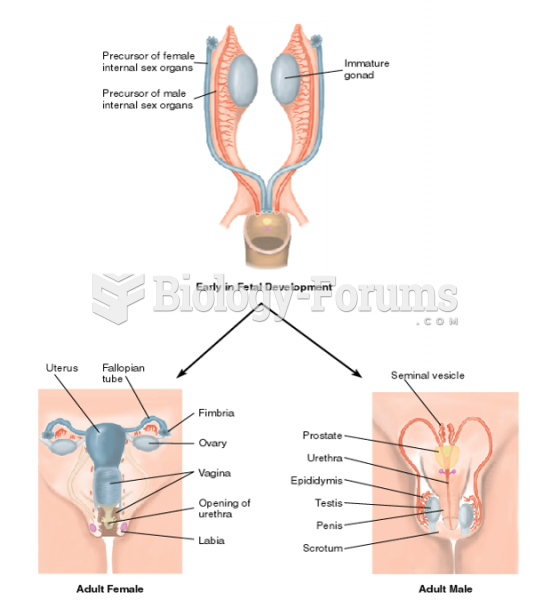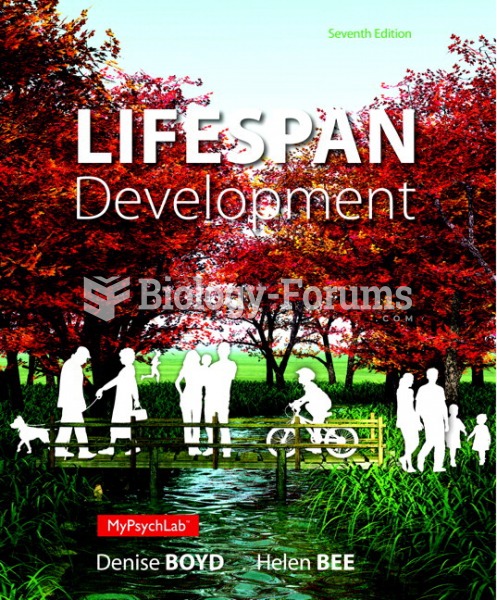|
|
|
Did you know?
The FDA recognizes 118 routes of administration.
Did you know?
Medication errors are three times higher among children and infants than with adults.
Did you know?
In most climates, 8 to 10 glasses of water per day is recommended for adults. The best indicator for adequate fluid intake is frequent, clear urination.
Did you know?
Astigmatism is the most common vision problem. It may accompany nearsightedness or farsightedness. It is usually caused by an irregularly shaped cornea, but sometimes it is the result of an irregularly shaped lens. Either type can be corrected by eyeglasses, contact lenses, or refractive surgery.
Did you know?
The most common treatment options for addiction include psychotherapy, support groups, and individual counseling.







